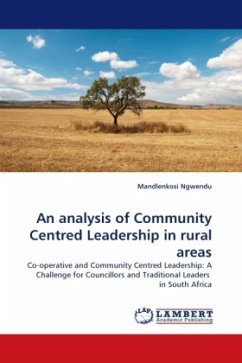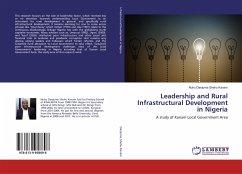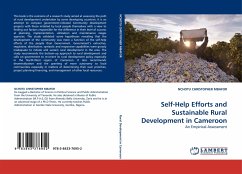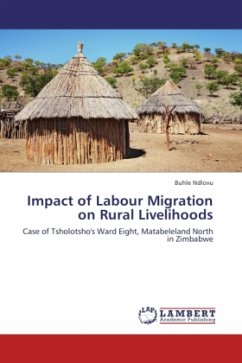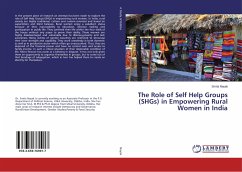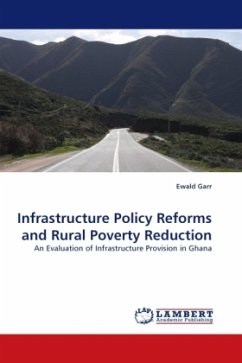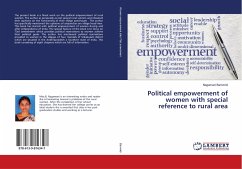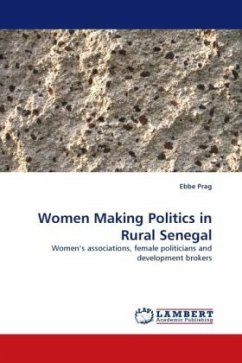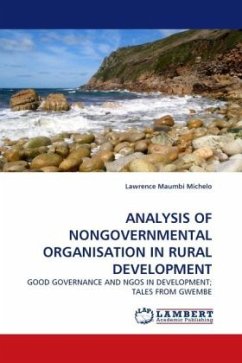
ANALYSIS OF NONGOVERNMENTAL ORGANISATION IN RURAL DEVELOPMENT
GOOD GOVERNANCE AND NGOS IN DEVELOPMENT; TALES FROM GWEMBE
Versandkostenfrei!
Versandfertig in 6-10 Tagen
32,99 €
inkl. MwSt.

PAYBACK Punkte
16 °P sammeln!
The study analyses the role of NGOs in rural community development in Africa, with a focus on Gwembe district in Zambia.The 1990s were a turning point in the development practices in Africa. This era saw the emergence of NGOs as a preferred mode of channeling development assistance by the donor community. NGOs were efficient, accountable, and closer to the people. They were able to make the communities own the development process. The state and its bureaucracy was vilified, demonised and condemned as incapable of service delivery to the rural poor. The study endeavored to assess the extent to ...
The study analyses the role of NGOs in rural community development in Africa, with a focus on Gwembe district in Zambia.The 1990s were a turning point in the development practices in Africa. This era saw the emergence of NGOs as a preferred mode of channeling development assistance by the donor community. NGOs were efficient, accountable, and closer to the people. They were able to make the communities own the development process. The state and its bureaucracy was vilified, demonised and condemned as incapable of service delivery to the rural poor. The study endeavored to assess the extent to which NGOs have lived up to the development promises of the 1990s. The study reviewed literature on the emergence of NGOs as important player in development in third world countries.The study on World Vision in Gwembe found that most of the assertions on the strengths of NGOs in development were a myth created in the 1990s. The negatives of NGOs in development outweigh the positives. The study found that NGOs in Gwembe have failed to make the development process owned by the communities. The communities in Gwembe viewed the NGO as not accountable.



